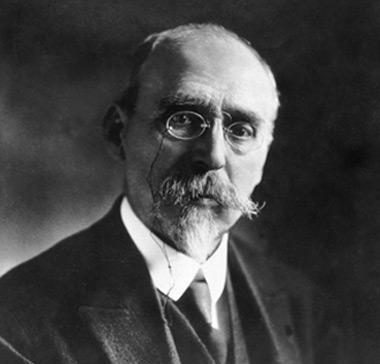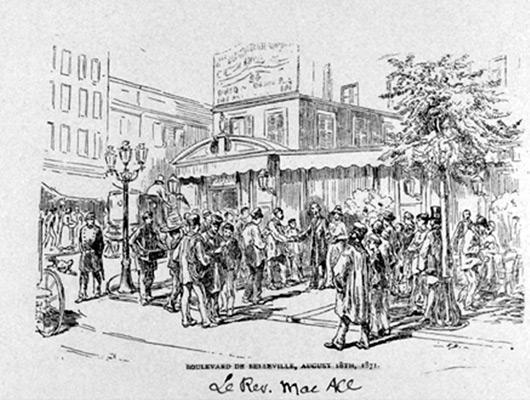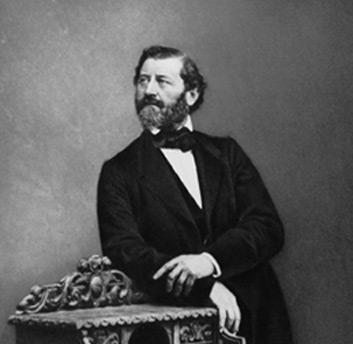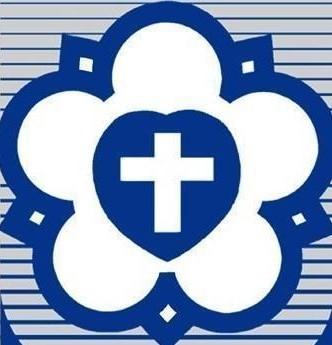The Pentecostal Churches
The Pentecostal movement is the most successful Protestant denomination in the world today, with about 150 million members. Its presence in France goes back to the 1930s and its main Churches are the “Assemblées de Dieu” and “La Mission Evangélique Tzigane”.
The history
The Pentecostal movement was founded by the black evangelist William James Seymour (1872-1922) in 1906, in the United States. It was the result of various different influences ; primarily, the spirituality of Afro-American culture and some elements of Methodism and Catholicism. It spread rapidly throughout the States.
Oral communication and the action of the Holy Spirit are important elements for the Third World. In Africa, Korea, China and Latin America the fact that Pentecostals lay great stress on the pre-Christian elements of thesir cultures is one of the main reasons for the success of Pentecostalism.
As for Europe, there are many Pentecostals in Eastern Europe, Switzerland and Scandinavia. In France, the Revival movement of the early XIXth century emphasised the importance of a more living faith and missionary outreach. Because of this, France identified with the Pentecostal movement which advocated “baptism in the Spirit” for their members, thus enabling them to speak in tongues and to acquire gifts of prophecy and healing.
Due to the spectacular expansion of the Pentecostal Churches in the Third World and in Eastern Europe, they have now come onto the ecumenical scene. The Ecumenical Church Council (ECC) and the Pentecostal Churches have met together several times and 12 of the largest Pentecostal Churches have joined the ECC.
The Pentecostals have also been in dialogue with the Vatican, the Worldwide Alliance of Reformed Churches and the Orthodox Churches.
Doctrine
The aim of the Pentecostals is to go back to basics, to live as the first apostles, stressing in particular the experience of Pentecost. So the identity of the Pentecostal movement is based on this experience of the Holy Spirit (that they call being “born again”) which brings the ability to speak in tongues, or glossolia. This consists of speaking a language which is comprehensible but unknown to the speaker, or, more commonly, the expression of praise or prayer using words which do not actually exist in any language.
According to the Pentecostals, the following gifts of the Spirit can be given to believers today : prophecy, and healing (which has drawn many people to take up this kind of faith) and all the other gifts listed in the Acts of the Apostles or in Paul’s Epistles : “…the Spirit gives one person a message full of wisdom, while to another person the same Spirit gives a message full of knowledge. One and the same Spirit gives faith to one person, while to another person he gives the power to heal. The Spirit gives one person the power to work miracles ; to another, the gift of speaking God’s message ; and to yet another, the ability to tell the difference between gifts that come from the Spirit and those that do not. To one person he gives the ability to speak in strange tongues…” (1 Corinthians 12.7-11).
The Pentecostal Churches follow the traditions of Protestant evangelical faith and adhere to the main principles of the Reform movement ; salvation through grace, the authority of the Bible, universal priesthood and they also believe in four “key points” of the Scriptures : “Jesus saves, Jesus baptises, Jesus heals and Jesus will come again.”
However, many members of these Churches are unaware of such connections and some Church historians actually consider the Pentecostal movement to be another form of Christianity.
The charismatic communities which came into being towards the end of the 70’s, are often rooted in the Pentecostal movement. But they go further than the traditional Churches in a real search for unification. The Charismatic Revival is important in the Catholic Church but within the movement there are different groups which have been shaped by the personality of their founder.
The structure of Pentecostal Churches
Pentecostal, Baptist and most Evangelical Churches have a similar structure. However, they differ in one point : the authority accorded to ministry, especially pastoral ministry, to safeguard against Churches possibly getting out of hand which is always a risk, due to the working class origin of its members and the acceptance of individual free expression.
Each Church is quite independent from the others but they are all very dependent on their pastor.
Pentecostal Churches are not members of the Fédération Protestante de France, apart from nine United Churches, including the Mission Evangélique Tzigane (MLETF). This is the biggest Church, with 100,000 members, more than a hundred places of worship and about fifty pastors and 1200 preachers.
An interesting development is the fact that many of the Pentecostal Churches now feel the need to renew contact with their roots and to openly join the Protestant community. There are currently discussions with the Assemblées de Dieu.
The expansion of the Pentecostal movement
The spectacular expansion of the Pentecostalmovement, especially in the Third World, is a challenge to other Churches who also seek to increase their membership. It forces some self-examination. Some sociologists have pointed out the link between the expansion of the Pentecostal Churches and the urbanisation of rural populations. Indeed, the Pentecostals have a strong attraction for those cut off from their cultural roots and traditional religious practices. People can find a warm welcome, joyful, rhythmical music and personal contact with other members who have witnessed to their faith ; they can see miracles taking place during services and gatherings, which seem to show that God is present and still at work today.
In some situations, women play a dominant role ; this brings with it a new concept of God and gently undermines the age-old patriarchal theology of many Christian Churches.
Oral communication also suits their members better than the intellectual nature of Protestant Churches. In this way the Pentecostals provide people who have lost their cultural bearings with a solid spiritual, moral and sometimes even financial structure.
Unfortunately, some traditional Churches consider that Pentecostal pastors have insufficient theological training and this induces a certain attitude of wariness which can go so far as openly considering some Pentecostal communities to be sects. However, times are changing and more and more Pentecostals are coming forward asking for the theological training which they feel they lack.
Equally, the Pentecostals are also wary of non-Pentecostals. They are zealous evangelists and even proselytizers, insisting on their distinctive kind of piety. They can even go as far as thinking non-Pentecostal Christians have not found God’s truth.
How will the Pentecostal movement develop ? Will it draw closer to the Protestant Churches ? Or will it distance itself from a rather fundamentalist interpretation of the Bible and decide instead to give their pastors better quality theological training ? Or will it gradually be taken over by the charismatic movement ?
The future of the Pentecostal movement remains as yet, undecided. Everything is possible.
Bibliography
- Books
- BRANDT-BESSIRE Daniel, Aux sources de la spiritualité pentecôtiste, Labor et Fidès, Paris, 1994
- COX Harvey, Retour de Dieu – Voyage en pays pentecôtiste, Desclée de Brouwer, Paris, 1994
Associated tours
-

Protestantism in the XXth century
The law of 9th December 1905 separating the Churches from the State guaranteed the freedom of public worship for the Reformed Church and a legal framework. Hardly surprisingly, most Protestants...
Associated notes
-

The Baptist Churches
The Baptist Churches have been established in France since the beginning of the XXth century in certain regions (mainly in the North), but with the help of the English and... -

The Evangelical Churches
The existence of Evangelical Churches in France goes back to the beginning of the XIXth century. There are at present 1850 Churches with 350.000 members and there are about 200... -

The Mennonite Churches
The Mennonite Churches go back to the radical Reform movement of the XVIth century ; they were persecuted in Switzerland, then settled along the Rhine valley. In the XVIIth century there was a... -

Union of Evangelical Free Churches
The Union des Eglises Evangéliques Libres (UEEL) (Union of Evangelical Free Churches) was set up in 1849, because its members wanted to openly strengthen their links with the Reform movement... -

The Evangelical Lutheran Church of France
In 1808, quite a large Lutheran community in Paris consisting of foreigners became a Church which was connected to Strasbourg. The Evangelical Lutheran Church of France was established in France...
